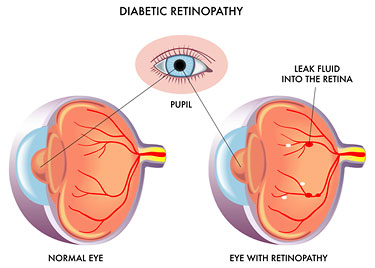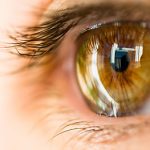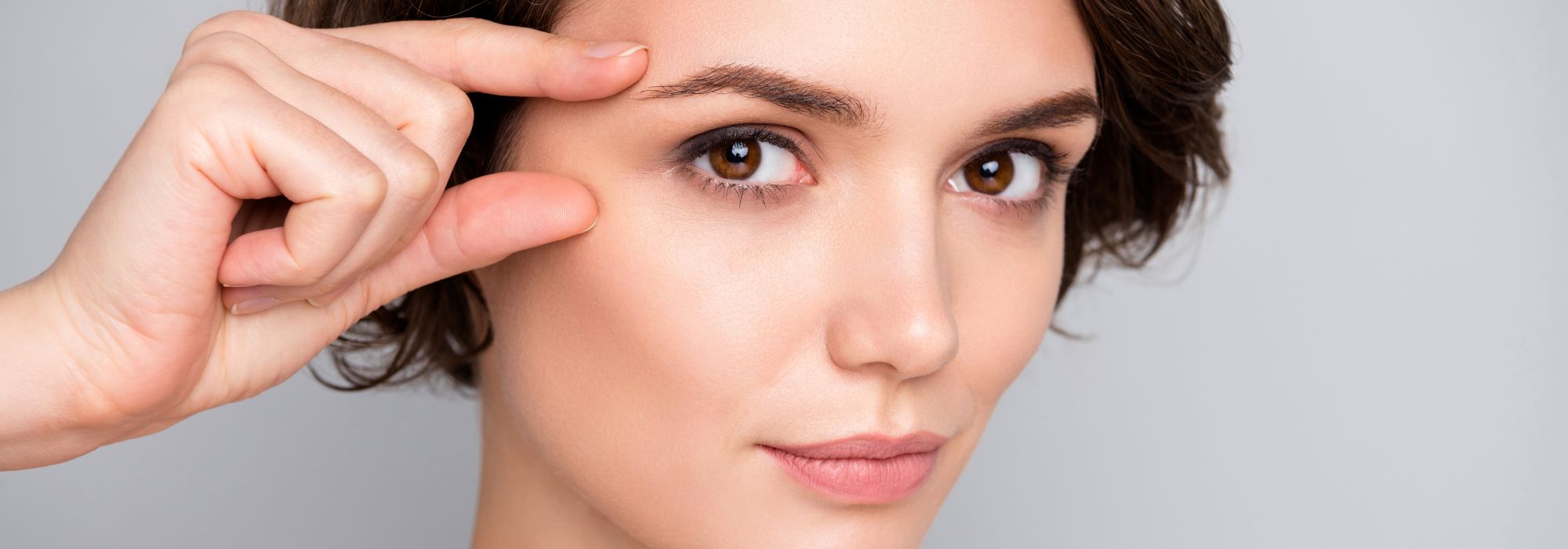Diabetic Retinopathy Treatment Edison
At Patel Eye Associates, we offer diagnostic testing and treatment options for diabetic retinopathy. The best treatment option is early intervention. If you believe you may be at risk or experiencing issues related to the condition, it is best that you contact our office to schedule a consultation for your diabetic retinopathy in Edison.
What is Diabetic Retinopathy?
When a person is suffering from the effects of diabetes, their body has a difficult time both storing and processing sugars. Even if their sugar levels are properly monitored and treated by medical professionals, it is still possible for the blood vessels in a person’s eye to sustain damage over time. This is because even when properly medicated, the blood sugar levels in or around these blood vessels remain abnormally high.
Unfortunately, this can often lead to the development of a condition called diabetic retinopathy, which is essentially a severe form of this type of vision impairment. Statistically speaking, a person with diabetes is up to 25 times more likely to sustain severe and permanent vision loss than someone without the disease.
 Signs and Symptoms of Diabetic Retinopathy
Signs and Symptoms of Diabetic Retinopathy
Not all diabetics will develop diabetic retinopathy, although all are at risk to some degree. In the early stages, the condition may be nearly undetectable. Symptoms can include:
- Floaters — a possible sign of ocular hemorrhage
- Difficulty reading or performing up-close tasks, which may indicate macular edema – a build-up of fluid in the macula
- Double vision
If you are diabetic and experience any of these symptoms, the NJ ophthalmologists at Patel Eye Associates can examine your eyes to determine whether you are suffering from this dangerous condition.
Diagnosing Diabetic Retinopathy
We diagnose diabetic retinopathy using a test called fluorescein angiography, which uses a special dye that is injected into the body and appears illuminated within the retina. The retina is viewed and documented with a retinal camera. Evaluation and comparison of the images over time helps Edison ophthalmologists Dr. Hitesh K. Patel and Dr. Himanshu S. Shah monitor your eye health, perform an early intervention, and chart the disease’s progression.
 Causes of Diabetic Retinopathy
Causes of Diabetic Retinopathy
Unstable blood-sugar levels and long-term diabetes increase the risk of diabetic retinopathy. In most cases, the condition develops slowly over years, though Dr. Patel cautions his diabetic patients against waiting for years to begin monitoring the eyes for disease. He encourages patients to have a dilated eye exam at least once a year following diagnosis.
Non-proliferative or background retinopathy is an early stage of the disease when high blood sugar levels cause damaged vessels, and subsequent leakage or bleeding results in swelling of the retina.
Proliferative retinopathy, or late-stage disease, produces new blood vessel growth along the surface of the retina. Because these new blood vessels can break or bleed into the vitreous (the clear gelatinous substance in the center of the eye), a much more serious form of the disease can develop, leading to blindness.
Treatments for Diabetic Retinopathy
The best treatment is prevention. Diabetics should visit Patel Eye Associates in Edison at least once a year for a dilated eye exam in order to catch diabetic retinopathy in its earliest stages. The American Academy of Ophthalmology reports early detection can help most people with diabetic retinopathy avoid blindness by providing early intervention.
Practice self-care, including:
- Monitoring your blood sugar and blood pressure to keep both under control
- Maintaining a healthy diet and regular exercise regimen
- Following your physician’s advice and recommendations
Other treatments for diabetic retinopathy include:
- Laser photocoagulation: A painless procedure that eliminates new growth and seals off leaking blood vessels
- Vitrectomy: A procedure to remove blood that has leaked into the vitreous, causing clouding vision
- Intravitreal Avastin injections: A more complete treatment than can be accomplished with other methods, producing fewer side effects that may result in vision loss
OCT Testing and Angiography
Dr. Patel is committed to examining your eyes to help you determine definitively whether or not you are suffering from diabetic retinopathy. Diagnosis is completed using a technique called OCT Testing, also called optical coherence tomography. It uses light waves to take cross-sectional images of the retina, allowing Dr. Patel to get a much clearer idea of exactly what is going on and whether or not diabetic retinopathy has in fact occurred.
Dr. Patel also utilizes a state-of-the-art technology known as angiography, also commonly referred to as arteriography, to assist him all throughout this process. Angiography uses both existing and advanced medical imaging techniques to help provide a detailed, three-dimensional model of the inside of the blood vessels in and around a patient’s eye.
Using this technique, Dr. Patel is able to see the exact layout and configuration of the arteries, the veins, and more in a patient, allowing him access to all of the actionable and accurate information that he needs to make the most informed decisions possible regarding treatment and other things of that nature moving forward.
Dr. Patel is also committed to using only the most up-to-date, medically advanced, and accurate intravitreal injections for treatment, which include but are not limited to things like Lucentis, Alyea, Avastin, Osurdex, and more. Dr. Patel also does laser photocoagulation for severe diabetic retinopathy.
Insurance and Payment Options
Our team can discuss insurance coverage and answer other questions you have regarding price and payment options during your initial consultation. The cost of your care will depend on the treatments performed and other factors.
Schedule a Consultation
If you are diabetic, don’t put off caring for your vision until it is too late. Please contact the ophthalmologists in Edison at Patel Eye Associates today to schedule an initial consultation for your diabetic retinopathy treatment in Edison. We serve patients in Edison, New Brunswick, and Middlesex County, New Jersey.
Questions about Diabetic Retinopathy
Related Blogs

Finding the Best LASIK Doctor
When the time comes to undergo a LASIK procedure, your choice of surgeon will be the most important consideration. Each surgeon is different, so make sure you find one… Read More

IntraLase LASIK Is Incredibly Precise
LASIK, short for laser in-situ keratomileusis, is an incredibly precise eye surgery that is used to correct vision problems such as nearsightedness, farsightedness, and astigmatism among others. It is a laser… Read More


